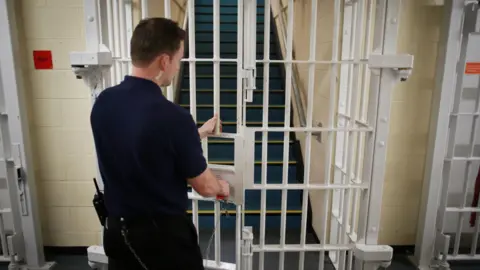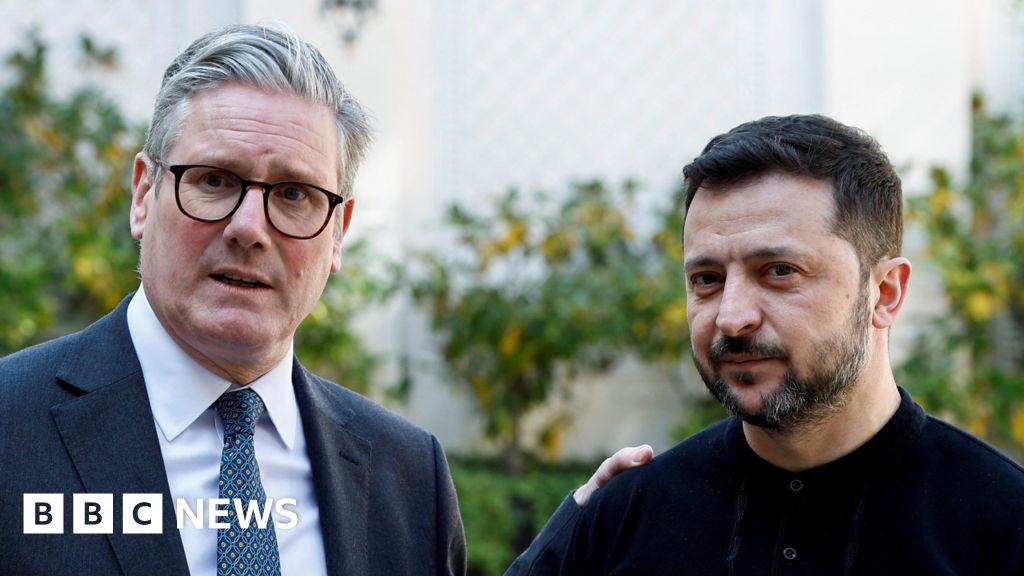ARTICLE AD BOX
Joshua Nevett
Political reporter

 PA Media
PA Media
The government's efforts to fix the prison crisis may not work without "bold investment decisions", the leading union for the probation service has said.
Ian Lawrence, general secretary of Napo, said a review of sentencing policy by former Conservative Justice Secretary David Gauke "may come to little effect" if the probation service was underfunded.
The union boss said he supported proposals to scrap short sentences for some offenders and toughen up community orders supervised by probation officers.
But he said probation staff were already "overworked" and suggested any "cost cutting" could increase pressure on the service.
"I'm struggling to see how a package of sentencing reform can work without the necessary support," Lawrence told the BBC.
A Ministry of Justice spokesperson said a "crisis" in the justice system had "put a huge strain on the probation service".
"We are hiring 1,300 new probation officers, investing in technology to cut back on admin, and increasing focus on those offenders who pose the greatest risk to the public," the spokesperson said.
"This will ease pressure on the service, help cut reoffending and keep our streets safe."
Gauke is understood to be considering recommending the idea of scrapping short prison terms as part of the sentencing review.
The review comes as prisons across the country are struggling to deal with overcrowding after the number of offenders behind bars hit a new high.
In an interim report, Gauke warned that unless radical changes were made, prisons in England and Wales could run out of cells by early next year.
Gauke's sentencing review is expected to be published this month, before the government sets out its spending plans for departments in June.
"Napo would welcome any initiatives to reduce the numbers of people in our prison estate," Lawrence said.
"But that can't come without the lord chancellor absolutely recognising the pressures that the probation service is now facing and will in the future.
"And that's why we need brave, bold investment decisions by this government and not more of the same."
Tight budget
The prisons and probation budget fell by 12% when inflation was accounted for between 2007–08 and 2023–24, according to analysis by the Institute for Fiscal Studies.
Chancellor Rachel Reeves has outlined plans for efficiency savings and in her spring statement, said day-to-day government spending would fall by £6.1bn per year by 2030.
But the chancellor has not yet stated which departments will have less money to spend, meaning it's not clear how the probation service will be affected.
The money allocated to government departments for the three years beyond 2025-26 will be set out in the spending review in June.
Lawrence said a reduction in funding for the Ministry of Justice, which oversees the probation service, could mean less funding to support offenders in the community and worse outcomes.
"In other words, they go out of prison and they've got no option but to commit crime because they have no means of supporting themselves," he said.
"They're back in prison within weeks. And so it goes on and that costs the taxpayer millions."
A source at the Prison Reform Trust, a charity, said the probation service would need to be resourced properly if there was more community sentencing.
They said the government may have to divert funding from prisons towards probation and community solutions.
"It needs to make a strong economic case for why this would be a spend-to-save policy," they said.
Pay dispute
In a national inspection report, the probation watchdog said there was a high shortfall of officers in some regions and workloads were a problem.
Lawrence said Napo was in dispute with the prison and probation service over pay progression and workloads.
He said the union had submitted a claim for a 12% pay rise for probation staff this year.
That's way above the increases independent pay review bodies have advised the government to give teachers (4%) and NHS workers (3%).
Lawrence said probation workers going on strike was a possibility if the pay offer was too low.
"We think senior leaders in [the service] have a responsibility to let ministers know the gravity of the situation," he said.
"And that worries me as to whether ministers are truly sighted on the operational crisis that exists in probation right now."
In a speech in February, Justice Secretary Shabana Mahmood set out her vision for reforming the probation service.
She said probation officers were "responsible for caseloads and workloads that exceed what they should be expected to handle".
The changes she announced included 1,300 new trainee probation officers by next March, and an £8m investment in new technology to reduce the administrative burden on staff.

 14 hours ago
13
14 hours ago
13








 English (US) ·
English (US) ·